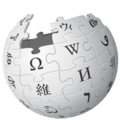Muhammad Yunus has a vision: to end world poverty. In order to work towards his dream, he founded a bank called Grameen Bank– bank for the poor. As stated on his website:
“Grameen Bank (GB) has reversed conventional banking practice by removing the need for collateral and created a banking system based on mutual trust, accountability, participation and creativity. GB provides credit to the poorest of the poor in rural Bangladesh, without any collateral.
At GB, credit is a cost effective weapon to fight poverty and it serves as a catalyst in the over all development of socio-economic conditions of the poor who have been kept outside the banking orbit on the ground that they are poor and hence not bankable. Professor Muhammad Yunus, the founder of “Grameen Bank” and its Managing Director, reasoned that if financial resources can be made available to the poor people on terms and conditions that are appropriate and reasonable, ‘these millions of small people with their millions of small pursuits can add up to create the biggest development wonder.’ ”
This bank now has almost 7 million borrowers…97 percent of whom are women. The poor always pay back and many of them now are no longer poor. There are ten indicators to assess poverty level and they are these:
A member is considered to have moved out of poverty if her family fulfills the following criteria:
1.
The family lives in a house worth at least Tk. 25,000 (twenty five thousand) or a house with a tin roof, and each member of the family is able to sleep on bed instead of on the floor.
2.
Family members drink pure water of tube-wells, boiled water or water purified by using alum, arsenic-free, purifying tablets or pitcher filters.
3.
All children in the family over six years of age are all going to school or finished primary school.
4.
Minimum weekly loan installment of the borrower is Tk. 200 or more.
5.
Family uses sanitary latrine.
6.
Family members have adequate clothing for every day use, warm clothing for winter, such as shawls, sweaters, blankets, etc, and mosquito-nets to protect themselves from mosquitoes.
7.
Family has sources of additional income, such as vegetable garden, fruit-bearing trees, etc, so that they are able to fall back on these sources of income when they need additional money.
8.
The borrower maintains an average annual balance of Tk. 5,000 in her savings accounts.
9.
Family experiences no difficulty in having three square meals a day throughout the year, i. e. no member of the family goes hungry any time of the year.
10.
Family can take care of the health. If any member of the family falls ill, family can afford to take all necessary steps to seek adequate healthcare.
Muhammad Yunus is currenly in preparations to leave for Oslo, Norway on December 8th, to receive the 2006 Nobel Peace Prize for himself and the Grameen Bank “for their efforts to create economic and social development from below”
 Wikipedia
Wikipedia